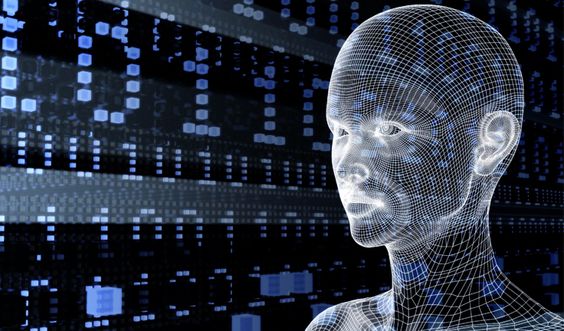AI Revolution: How Artificial Intelligence is Shaping Our Future
AI Revolution: How Artificial Intelligence is Shaping Our Future
Artificial Intelligence: Revolution Introduction and its importance

AI revolution is transforming various aspects of our lives, including healthcare, transportation, finance, and entertainment. Its powerful algorithms can solve complex problems and enhance decision-making processes. Imagine a future where AI-powered medical imaging systems diagnose diseases accurately, and self-driving cars navigate busy streets. Also, AI boosts productivity, leading to economic growth and increased efficiency across industries. This technological breakthrough promises improved quality of life, unexplored opportunities, and an extraordinary future full of immense potential.
1. Current status of artificial intelligence technology and its applications
AI technology has made great development in recent years, changing several areas like healthcare and finance. With deep learning algorithms and vast data, AI can analyse complex patterns and predict outcomes with speed and accuracy. Its promise is infinite, including discoveries in robotics, natural language processing, and computer vision. In addition, AI is altering every area of our life, from self-driving cars to chat bots delivering 24/7 customer assistance. As we explore the untapped potential of AI, we are thrilled about what the future holds.
2. Impact of artificial intelligence on various industries and labour market
To commence, Artificial intelligence (AI) has exerted a substantial influence on various sectors, including healthcare, finance, manufacturing, and transportation. Nonetheless, its sophisticated predictive analytics and data processing prowess have not only enhanced efficiency and precision in medical diagnostics but have also served to refine investment approaches within finance, and optimize production processes. Furthermore, the advent of AI-fueled factory automation has triggered a revolution in transportation systems. Despite ongoing arguments about the potential displacement of certain job positions by AI, the technology is poised to simultaneously generate novel opportunities for humans. This will enable them to redirect their focus towards high-level problems, while machines adeptly handle repetitive manual tasks. Looking ahead with optimism, AI stands as a force primed to reshape industries in unprecedented ways.
3. Benefits of artificial intelligence in health care, transportation and other sectors
First of all, An Artificial intelligence (AI) has significantly improved patient care by enhancing diagnostic accuracy through data analysis and machine learning algorithms. It can quickly analyze large medical records, identifying potential diseases or conditions that may go unnoticed by human physicians.However, AI aids in developing personalized treatment plans based on individual health profiles, leading to higher success rates and improved patient outcomes. In the transportation sector, AI-powered technologies are transforming travel, from self-driving cars to traffic management systems, paving the way for safer and more efficient networks.
4. Challenges and constraints faced by AI technology
While AI technology holds immense potential, it also encounters various challenges. Firstly, there’s the necessity for high-quality data during training, which is crucial for effective outcomes. Additionally, there’s the risk of bias, which emanates from data privacy regulations, potentially skewing results. Furthermore, issues surrounding interpretability arise, making it challenging for humans to comprehend the decision-making processes of AI systems. Notably, these systems can exacerbate societal inequalities by perpetuating biases ingrained in their inputs. This, in turn, hinders a clear understanding of their outcomes. Moreover, the ethical concerns tied to job displacement due to automation are significant barriers to the widespread adoption of AI technology. However, it’s important to note that continuous research and development endeavors, coupled with responsible implementation strategies, can lead to overcoming these hurdles. Consequently, the full capabilities of AI technology can be unlocked, fostering its promising potential.
5. Governments’ role in regulating the development of AI Revolution
The government plays a crucial role in regulating the development of artificial intelligence (AI), ensuring responsible and ethical use. By establishing regulations promoting transparency, privacy protection, fairness, and accountability, governments can minimize risks and benefit society. Collaboration with academia, industry leaders, and experts can foster innovation and address ethical concerns like AI safety, cybersecurity threats, job automation, and potential societal disruption.
6. Future possibilities and potential risks of advanced AI
The government plays a crucial role in regulating the development of artificial intelligence (AI). As rapid advancements continue to unfold, it becomes imperative to institute regulations that not only promote transparency, privacy protection, fairness, and accountability in AI systems, but also address challenges associated with these developments. To achieve this, it is essential to establish frameworks for data governance, algorithmic transparency, and the mitigation of bias within AI systems. By fostering collaborative efforts between the government, academia, industry leaders, and experts, we can simultaneously drive innovation forward and tackle ethical concerns surrounding AI safety, cybersecurity threats, job automation, and potential societal disruption. Through the facilitation of international cooperation and the active involvement of multiple stakeholders, governments can position themselves at the forefront of steering transformative advances in AI technology.
· Conclusion: Embracing the AI Revolution for a Better Future
The AI revolution is upon us, and it holds immense potential to transform our lives. It can enhance healthcare, enable autonomous vehicles, and provide personalized experiences in fields like education, entertainment, and customer service. This shift towards a more inclusive society is a radical shift towards AI-driven technologies. As we navigate this rapidly evolving landscape of innovation and disruption, we should eagerly anticipate the advancements AI-driven technologies bring forth, as they lie in a future teeming with progress and endless possibilities.

